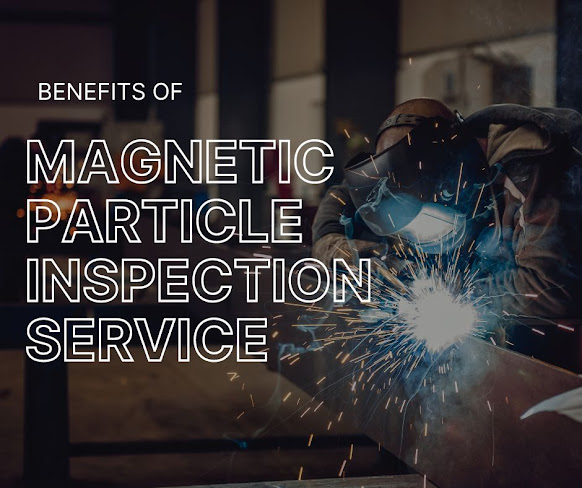Benefits of "Magnetic Particle Inspection Service"
"Magnetic Particle Inspection (MPI) Service" is a
non-destructive testing method widely used in various industries to detect
surface and subsurface defects in ferromagnetic materials. This technique has
numerous benefits that make it a preferred choice for inspecting critical
components and structures. Here are some of the key benefits of Magnetic
Particle Inspection Service:
1. Sensitivity
to Surface and Subsurface Defects: MPI can detect both surface and subsurface
defects, such as cracks, seams, laps, and other discontinuities, even those
that are not visible to the naked eye. This makes it highly effective for
inspecting components that require a high level of reliability and safety.
2. Quick and
Cost-Effective: Compared to other non-destructive testing methods, MPI is
relatively quick and cost-effective. The process does not require elaborate
setup or expensive equipment, which makes it a practical choice for routine
inspections and quality control.
3. Versatility:
Magnetic Particle Inspection can be applied to a wide range of ferromagnetic
materials, including iron, steel, nickel, cobalt, and their alloys. This
versatility allows industries such as aerospace, automotive, manufacturing, and
construction to use MPI to inspect a diverse array of components and
structures.
4. Portable
and Field Applicable: MPI can be performed both in the laboratory and on-site.
Portable equipment allows for field inspections, enabling industries to test
large and difficult-to-move components without the need for extensive
dismantling.
5. Immediate
Results: MPI provides instant results, allowing for immediate evaluation of
inspected parts. This real-time feedback enables prompt decision-making on
whether components meet the required quality standards or if further analysis
and repair are necessary.
6. Non-Destructive:
As a non-destructive testing method, MPI does not cause damage to the inspected
components. This characteristic is crucial for critical parts that need to
maintain their structural integrity and functionality.
7. Reliable
Detection: MPI can reliably detect and locate defects, even in complex shapes
and configurations. This capability ensures the identification of potential
issues before they become critical, preventing costly failures and ensuring the
safety of personnel and assets.
8. Complementary
to Other NDT Methods: MPI can be used in conjunction with other non-destructive
testing techniques, such as Ultrasonic Testing
(UT) or Dye
Penetrant Inspection (DPI), to obtain more comprehensive and accurate
results.
Overall, Magnetic Particle Inspection Service offers
businesses an efficient and effective method for detecting defects, ensuring
the quality and safety of their products, and ultimately reducing downtime and
maintenance costs.


Comments
Post a Comment